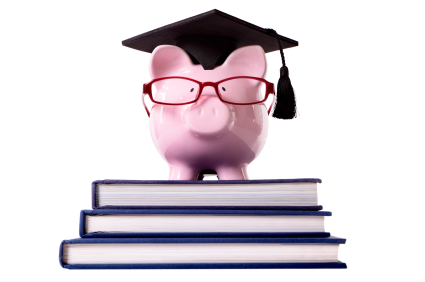It’s no secret that funding a higher education is expensive. Even with scholarships, most college students have to seek out some sort of financial aid. Although financial aid allows for students to attend college and does not seem like a big deal during a student’s time at the university, once those loans kick in six months after graduation, many graduates are unprepared to pay off the mass of debt they accumulated in pursuit of a higher education.
Because student loans accrue a significant amount of interest, a student’s loan amount can double by the time a student finishes paying it off. For example, if a student has taken out $20,000 in loans, the standard 10-year payment plan tacks on between $10,000 and $20,000 extra in interest.
Your best bet to paying off student loans is to use these four tips to alleviate the debt as soon as possible:
1. Pay Early and Pay Often
Making more payments more often results in less interest accumulation. Making once-a-month payments means interest has been accumulating on that amount for the entire month while paying frequently cuts down on earned interest.
Consider making bi-weekly payments. No matter how small the amount, the earned interest is being cut down, which results in more savings.
Something students should be aware of is that they can make payments concurrently while attending school. Although it is easy to worry about loans later, later creeps up quickly. Many students wish they had made payments during school.
2. Consolidate
For graduates who have different loans from different lenders, consolidating them into one loan under one lender will save on interest.
Instead of a 6.8 percent rate of interest on many different loans, a 6.8 percent rate of interest on one loan will save thousands of dollars. For loans with different interest rates, a consolidated loan will average the rates, which generally results in a much lower interest rate.
Graduates must apply for loan consolidation.
3. Budget
Budgeting is incredibly important for new college graduates. With extra expenses, new bills, and a new income, it is easy to go overboard and fill in the money gaps with credit cards. While credit cards build credit, which is recommended, use a credit card wisely in order to avoid amassing more debt.
Budget and learn how to live without certain amenities. Track all expenses either on paper or on an app to ensure staying on track. Apply extra money each month toward paying down the loans. Learn to get ahead on payments.
4. Other Options
There are other options available such as finding an extra source of income to supplement the cost of loans such as a weekend job, freelance position, or small business. Or, consider the possibility of paying off a higher interest loan with a lower interest loan. Although it might seem counterintuitive to pay off a loan with a loan, depending upon interest rates, you can save a lot of money in the long run. Look into other loans from banks, lenders, or title loans from companies like Titlemax.



